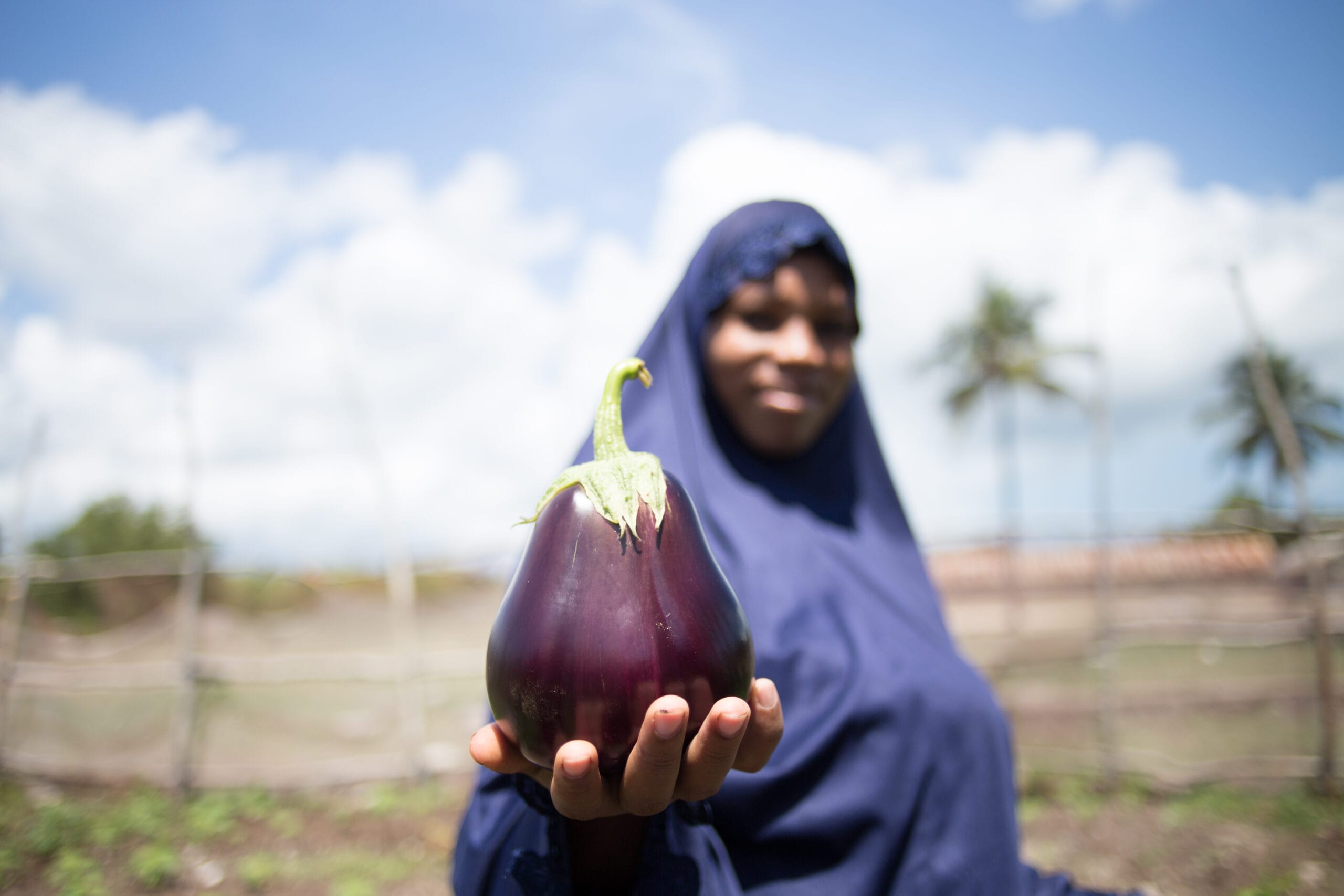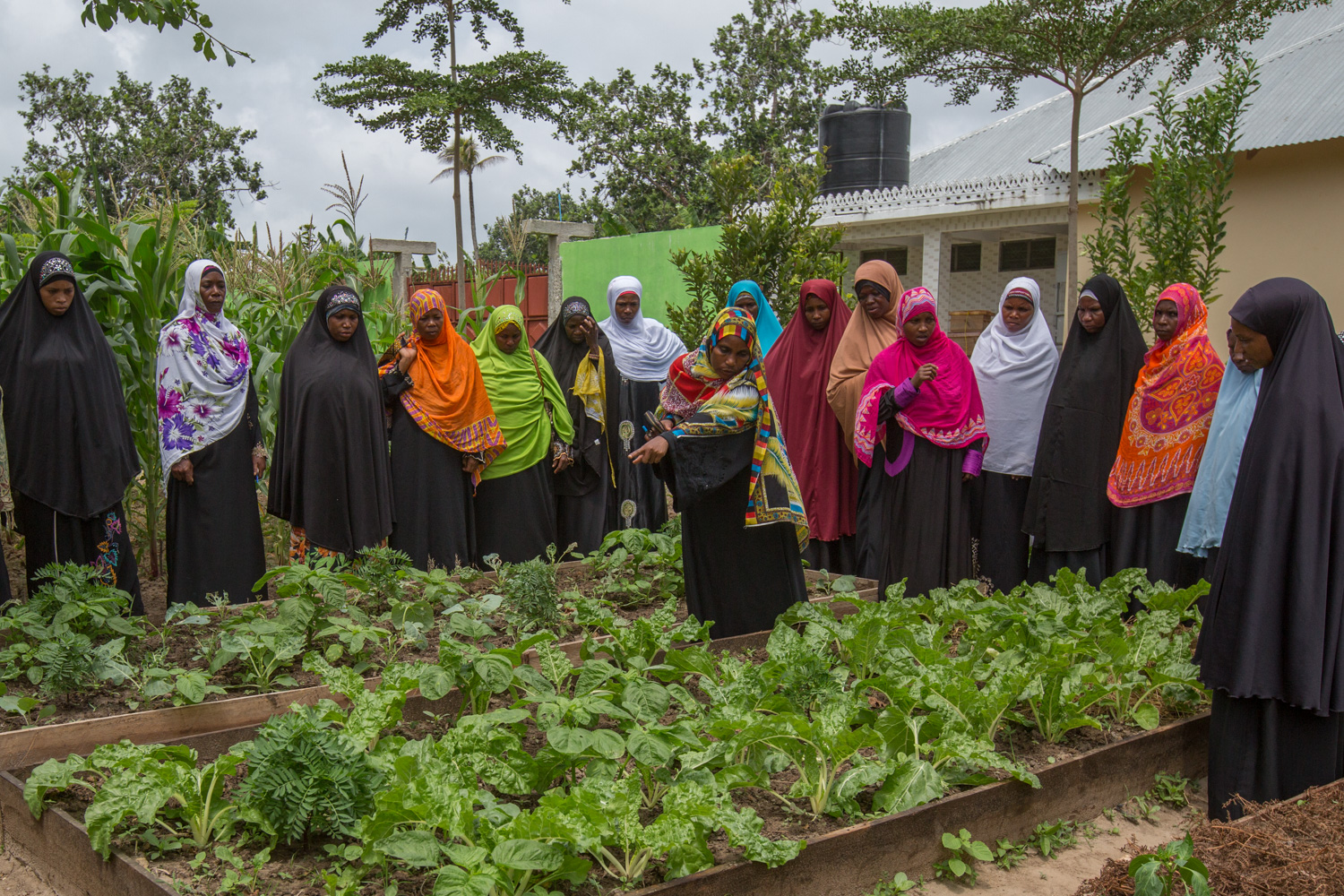Into a Kitchen Garden: Zamzam Salim Khamis
By Rebecca Jacobs, Posted on November 27, 2023
In the quiet village of Kiuyu Maambani in Wete District, Pemba, Zamzam Salim Khamis models the initiatives and success of the Kitchen Garden programme developed by Community Forests Pemba (CFP). Let’s delve into the exciting changes Zamzam and many others have seen on their farms.
Zamzam’s Story
At 43, Zamzam found herself navigating the challenges of widowhood, supporting eight children. Previous attempts at earning through sewing and weaving fell short, particularly in meeting the basic needs of her family. It was in 2021 that she joined a cooperative fruit farming group, hoping for a positive shift.
The real transformation began in 2022 when Zamzam visited relatives in Kinyikani. There, she witnessed a novel approach to vegetable gardening—vertical containers yielding flourishing eggplants. Intrigued, she inquired about this innovative method. Her relatives explained it was part of CFP’s project, especially designed for women with limited land.
Upon contacting CFP’s Kitchen Garden Officer, Zamzam received a mix of seeds—eggplant, okra, amaranth, and spinach. This marked the commencement of her journey into kitchen gardening, a practical, hands-on solution to her financial challenges.

Growing Change
The intervention wasn’t just about seeds. The Kitchen Garden Officer’s periodic visits and detailed instructions covered various aspects of farming, from preventing pests and diseases to managing soil and water efficiently, making and using natural fertilizers, and even tips on effective marketing. Zamzam shared, “They used to visit me from time to time to see how my garden is progressing while giving me various instructions.”
The impact was tangible. Zamzam’s income skyrocketed. “This year, I have earned $4,800,000 shillings while feeding my family vegetables for all seven days of the week. I am collecting $100,000 shillings every week now.” This economic progress is a far cry from her earlier struggles to make even $1,000 shillings weekly.
Buoyed by her newfound financial stability, Zamzam made significant investments in her farm. She purchased land worth $1,500,000 shillings and initiated construction—a testament to the tangible benefits of kitchen gardening.

Beyond The Garden
Yet, the impact extended beyond economics. Zamzam’s garden became a hub for knowledge sharing. “Women in the community now come to my garden to learn new methods of growing vegetables. My respect has improved within the community, especially my fellow women. I now have seven students who come to learn and have started to follow my teachings.”
Examining Zamzam’s journey through a scientific lens brings to light the genuine and comprehensive changes brought about by structured kitchen garden initiatives. The evidence of economic improvement, coupled with systematic methodologies and social impact, paints a picture of these initiatives not just as agricultural interventions but as practical catalysts for holistic transformation.
